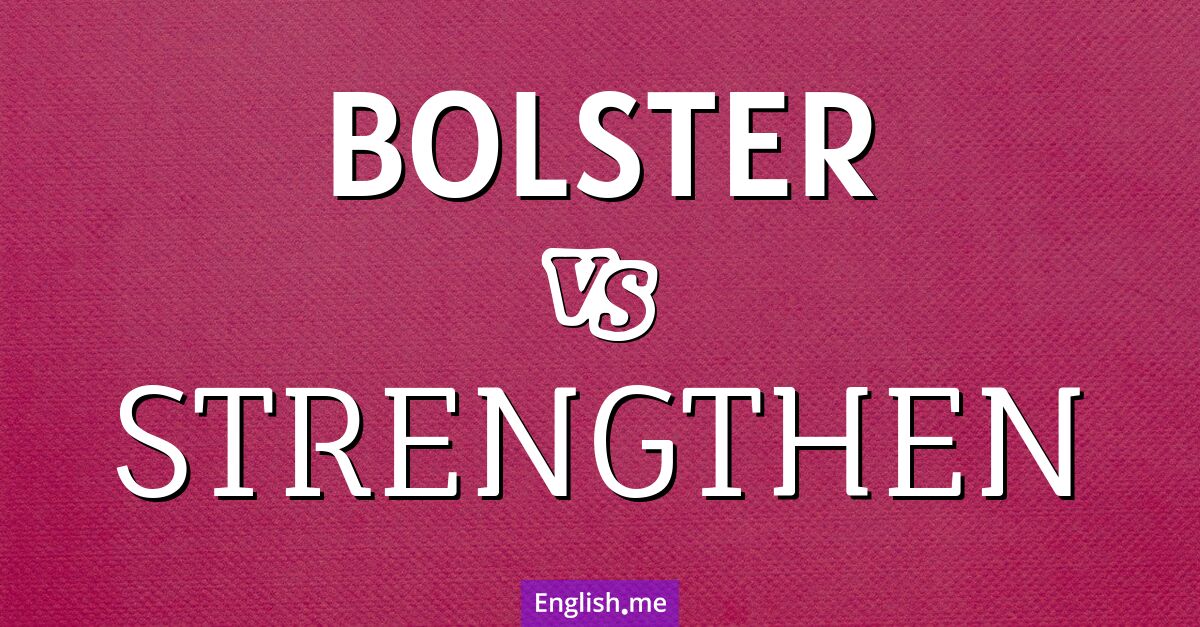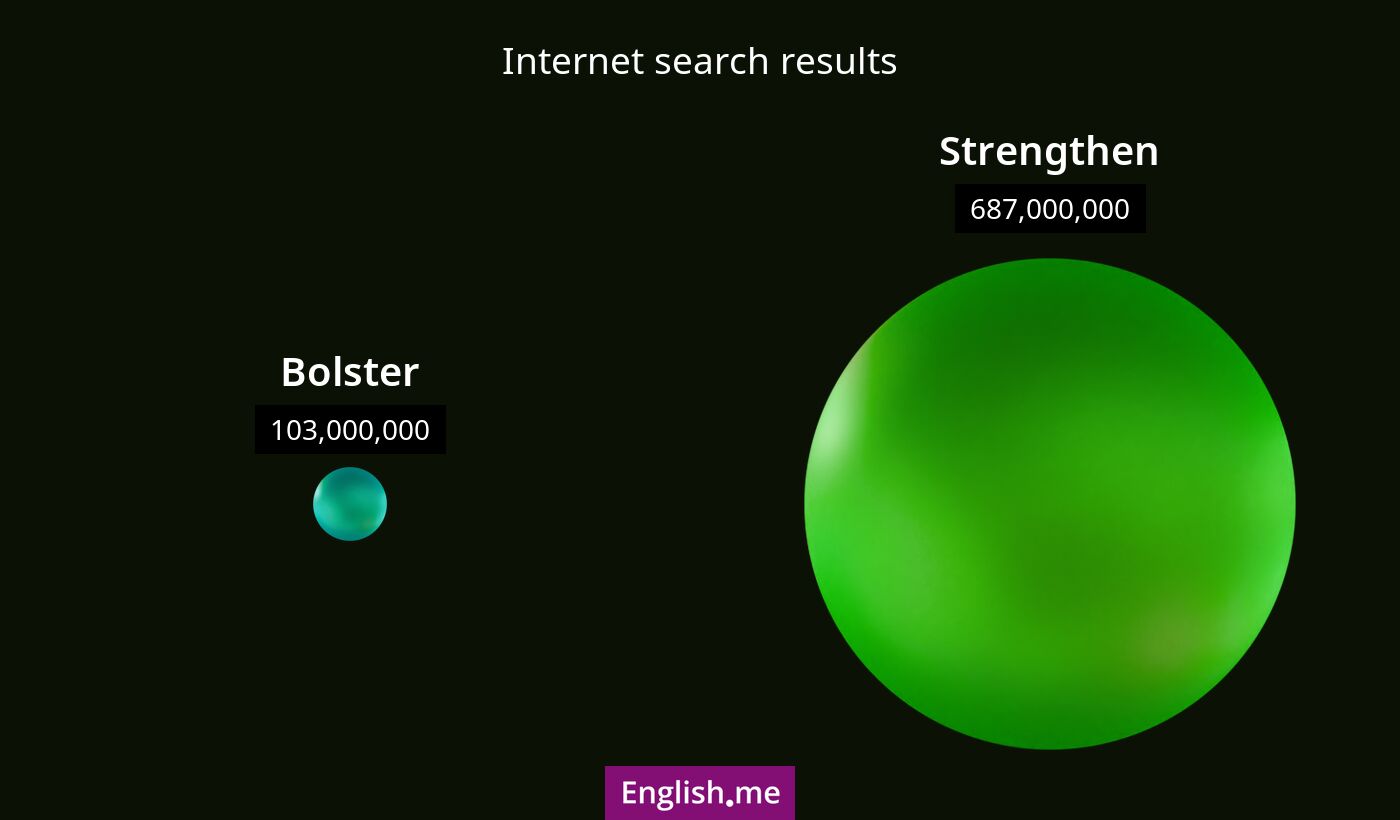Comparing the power of "bolster" and "strengthen"

 What is similar?
What is similar?
Both "bolster" and "strengthen" refer to the act of making something more robust or supporting it to become more effective or stronger. They can both be used in contexts where support, reinforcement, or enhancement is implied.
 What is different?
What is different?
The word "bolster" typically implies providing additional support or reinforcement to something, often with the connotation of providing support from underneath or shoring up. It can be both literal and metaphorical. "Strengthen" is more general and refers to the process of making something stronger or more resilient without necessarily implying the means or method of doing so. It is often used more broadly without the implication of providing support from below or from within.
 Which one is more common?
Which one is more common?

 Examples of usage
Examples of usage
Bolster- They bolstered the old bridge with additional beams.
- The presence of a mentor can bolster a student's confidence.
- The government's move to bolster the economy was well-received.
- Regular exercise helps to strengthen muscles.
- The team sought to strengthen their communication skills.
- Measures were taken to strengthen the company's financial position.

 English
English español
español française
française italiano
italiano deutsche
deutsche 日本語
日本語 polski
polski česky
česky svenska
svenska Türkçe
Türkçe Nederlands
Nederlands